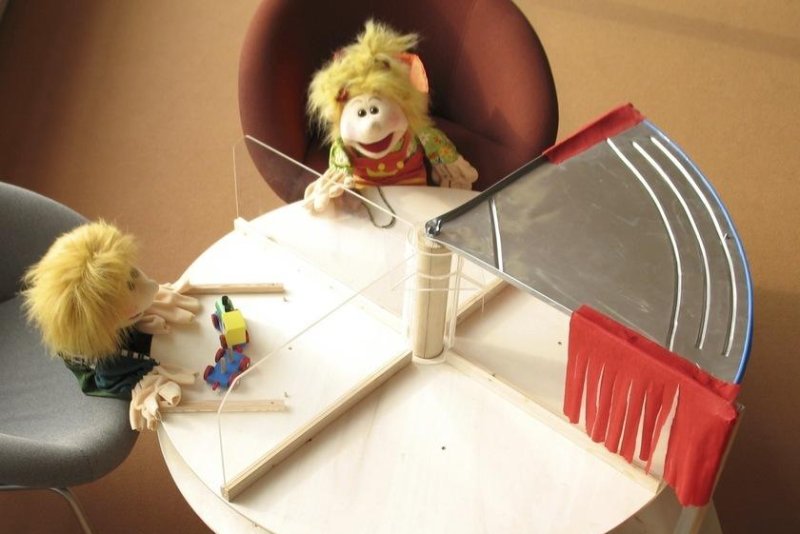Toddlers were able to distinguish between victims and perpetrators, even when they were puppets, and were more willing to return stolen items to victims than to punish perpetrators. Photo by MPI/Evolutionary Anthropology
LEIPZIG, Germany, June 18 (UPI) -- Contrary to their reputation as insatiable egomaniacs, 3-year-olds have an impressive propensity for empathy -- according to new research by scientists in Germany.
In a series of psychological experiments, toddlers were found to be just as concerned with and likely to respond to the needs of others as they were with and to their own.
Children, ages 3 to 5, were more likely to share toys with a puppet that they witnessed helping another individual than they were with a puppet who had behaved badly. Study participants as young as 3 also readily volunteered to return stolen items to their rightful owner, and when possible were willing to thwart the theft of items from innocent victims.
"The chief implication is that a concern for others -- empathy, for example -- is a core component of a sense of justice," Keith Jensen, a researcher at the University of Manchester, explained in a press release. "This sense of justice based on harm to victims is likely to be central to human prosociality as well as punishment, both of which form the basis of uniquely human cooperation."
The experimental scenarios -- in which children were asked whether they were willing to take toys from a puppet that had stolen the items from someone else -- were set up and monitored by a team of scientists from Manchester and the Max Planck Institute for Evolutionary Anthropology in Leipzig, Germany.
Similar studies have shown chimpanzees are unwilling to punish cheaters unless they themselves have been negatively impacted by the misdeed. The latest research is part of an effort to better understand the emergence of a sense empathy and ideas about restorative justice in young children.
"The take-home message is that preschool children are sensitive to harm to others, and given a choice would rather restore things to help the victim than punish the perpetrator," Jensen said. "Rather than punish children for wrong-doings or discuss the wrong-doings of others in punitive or perpetrator-focused ways, children might better understand harm done to the victim and restoration as the solution."
The new research was published in the journal Current Biology.















